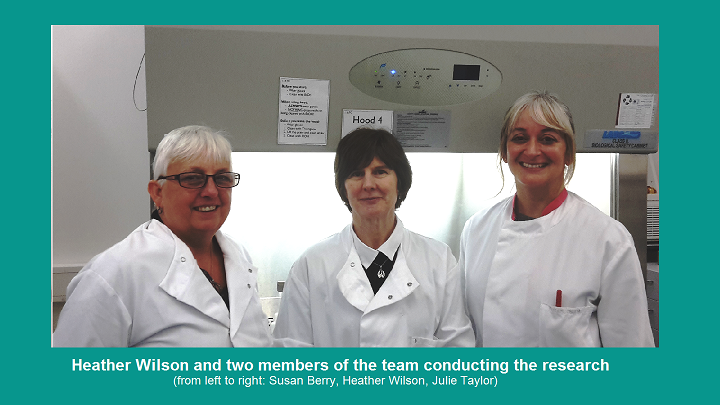The body’s defence (immune response) has been studied mainly by looking at its cells and at the chemical signals that control them. Many drugs aim to treat problems of the immune system by changing these signals. However, two studies carried out in Aberdeen show that physical stimuli can also control immune responses. Both studies, led by Professor Heather Wilson and her team, were funded by NHS Grampian endowment grants. “We showed that shockwave therapy and electric fields, both of which are physical rather than chemical drug stimuli, can strongly influence immune cell function. These physical stimuli are non invasive, they can be administered locally to the area that needs therapeutic intervention, and have no side effects”, Professor Wilson told us.
In a one study the researchers found out how shockwave therapy can change the white blood cells known as macrophages, so they can also “eat up” debris and dead cells, to help the healing process. Shockwave therapy is being used to treat chronic non healing ulcers at Aberdeen Royal Infirmary. The results of this work have been presented at the annual congress of the British Society of Immunology.
In a second study the researchers used electric fields to change the function of the T cells, which are immune cells that can cause autoimmune diseases, if they don’t work properly. In this study they showed that the electric fields could switch off the T cell functions, and this could be a possible treatment for autoimmune disorders. For instance it could be used as an additional therapy for diseases such as rheumatoid arthritis or psoriasis, where an electric field could be easily applied. The results of this study were published in the prestigious scientific magazine Scientific Reports.
